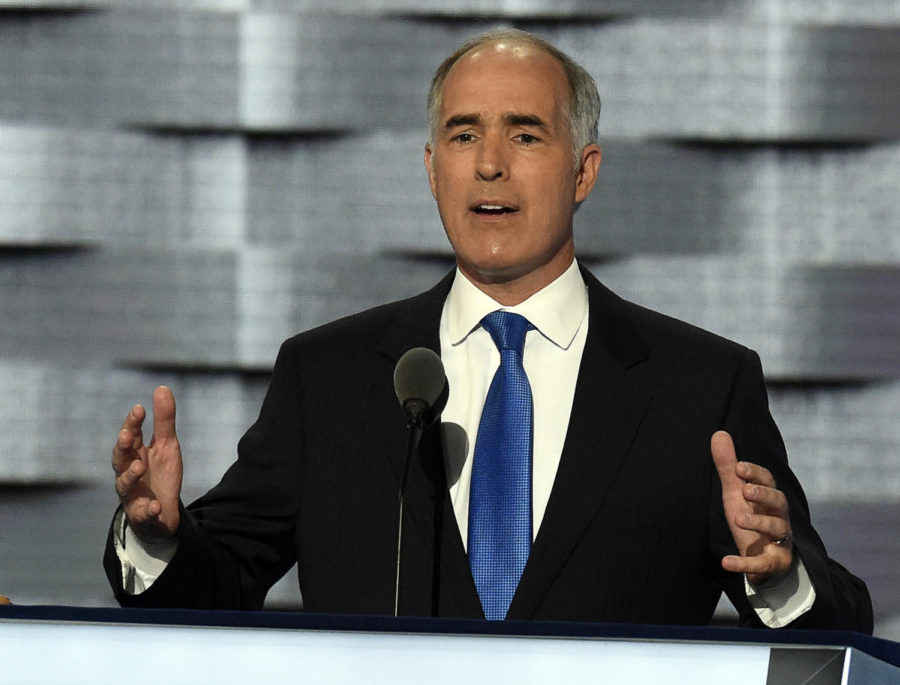Pa. Senator Bob Casey Jr. beats Lou Barletta, wins third term
Pennsylvania Sen. Bob Casey address delegates during the 2016 Democratic National Convention on Monday, July 25, 2016 at the Wells Fargo Center in Philadelphia, Pa. (Clem Murray/Philadelphia Inquirer/TNS)
November 6, 2018
Four-term Republican U.S. Rep. Lou Barletta sought to take the sole Senate seat of two-term incumbent Democrat U.S. Sen. Robert P. Casey Jr. — but failed to do so, as Sen. Casey defeated Barletta.
With Pennsylvania leaning right and electing President Donald Trump by just one percentage point in the 2016 election — the first time the Commonwealth voted red since 1988 — the results of the midterm election seemed up in the air.
But among the 10 Democratic incumbents running for re-election in states that Trump won in 2016, Sen. Casey Jr. was considered as one of the safest guarantees for re-election, according to The Washington Post. FiveThirtyEight also predicted a 96.9 percent chance of the Democrats winning the Pennsylvania Senate seat. Other polls indicated a Casey lead of over 50 percent, with a large amount of undecided voters.
Casey, 58, is the son of Pennsylvania’s former two-term governor Bob Casey Sr., who, like his son, served a conservative Democratic agenda. A native of Scranton, the young Casey graduated from the College of the Holy Cross and later attended law school at The Catholic University of America.
Gov. Casey Sr.’s platform included a wide range of stances that vary the ideological spectrum. From liberal economic stances to conservative social ideals, the term “Casey Democrats” was coined, and it has trickled down to Casey Jr.’s time in the public office as well.
Distancing himself from President Trump, Casey Jr. focused his campaign on health care and the economy. Though left-leaning on both issues, the senator has distanced himself from the Democratic platform, especially on issues such as gun control and abortion.
The 2018 Midterm election marks Casey’s seventh run for a statewide office position. Before his first run for Senator in 2006, Casey ran for state auditor general in 1995 and state treasurer in 2004, winning both of those races, respectively. He also ran in the 2002 Democratic gubernatorial primary, but lost to Ed Rendell.
Casey’s win marks the beginning of his third six-year term in the Senate.








